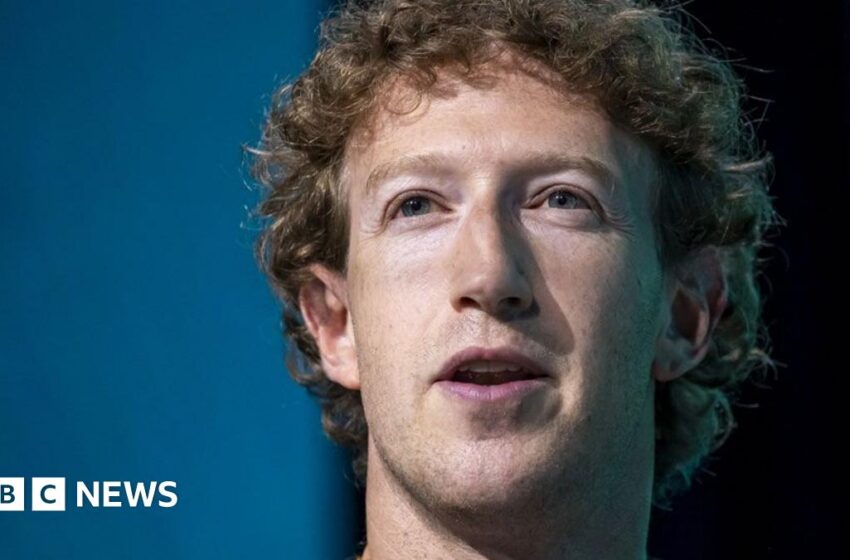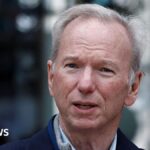No products in the cart.

[ad_1]
Meta’s blog post said it would also “undo the mission creep” of rules and policies -highlighting removal of restrictions on subjects including “immigration, gender and gender identity” – saying these have stemmed political discussion and debate.
“It’s not right that things can be said on TV or the floor of Congress, but not on our platforms”, it said.
The changes come as technology firms and their executives prepare for President-elect Donald Trump’s inauguration on 20 January.
Trump has previously been a vocal critic of Meta and its approach to content moderation, calling Facebook “an enemy of the people” in March 2024.
But relations between the two men have since improved – Mr Zuckerberg dined at Trump’s Florida estate in Mar-a-Lago in November. Meta has also donated $1m to an inauguration fund for Trump.
“The recent elections also feel like a cultural tipping point towards, once again, prioritising free speech,” said Mr Zuckerberg in Tuesday’s video.
Mr Kaplan replacing Sir Nick Clegg – a former Liberal Democrat deputy prime minister – as the company’s president of global affairs has also been interpreted as a signal of the firm’s shifting approach to moderation and its changing political priorities.
Kate Klonick, associate professor of law at St John’s University Law School, said the changes reflected a trend “that has seemed inevitable over the last few years, especially since Musk’s takeover of X”.
“The private governance of speech on these platforms has increasingly become a point of politics,” she told BBC News.
Where companies have previously faced pressure to build trust and safety mechanisms to deal with issues like harassment, hate speech, and disinformation, a “radical swing back in the opposite direction” is now underway, she added.
[ad_2]
Source link















